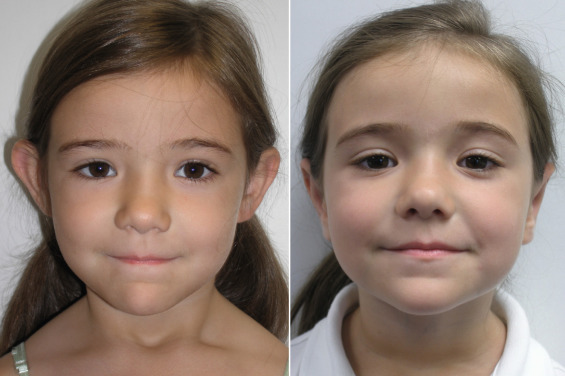Ear Reconstruction in Georgia
Search and Compare the Best Clinics and Doctors at the Lowest Prices for Ear Reconstruction in Georgia

Find the best clinics for Ear Reconstruction in Georgia
No clinics available
Israel offers the best prices Worldwide
Price: $ 14,755

- Home
- Georgia
WHY US?
At Medijump, we're making medical easy. You can search, compare, discuss, and book your medical all in one place. We open the door to the best medical providers worldwide, saving you time and energy along the way, and it's all for FREE, no hidden fees, and no price markups guaranteed. So what are you waiting for?

Free

Best Price

Widest Selection

Risk-Free
What you need to know about Ear Reconstruction in Georgia

Ear reconstruction is a surgical procedure to rebuild a damaged ear caused by trauma, accident or cancer surgery, as well as misshapen or underdeveloped ear due to a disorder present at birth (congenital). There are several types of ear reconstruction, including microtia repair (creating an ear for people with an inborn condition where their outer ears are malformed, small, or absent), otoplasty (to make the earless prominent), and ear defect repair (to restore the form and function of the outer ear after trauma, accident, or cancer surgery).
What Does the Procedure Involve?
All types of ear reconstruction can be performed under local or general anesthetic. The first stage is creating the ear, your surgeon may use your own tissue, such as cartilage or skin to reconstruct the ear or use a prosthetic. Then, the next stage is putting the ear into position, so that it appears and looks just like a normal ear would.
How Long Should I Stay in Georgia for a Ear Reconstruction Procedure?
Most people can leave the hospital on the same day as the procedure. However, adults with complex cases and children need to stay in the hospital overnight. After you are discharged, you should aim to stay in Georgia for 5 to 7 days for follow-up checkups and removal of stitches.
What's the Recovery Time for Ear Reconstruction Procedures in Georgia?
You should plan to return to work within 5-7 days if your job is not physically demanding. The total recovery time can vary from two to six weeks. Ask your doctor when you can resume your daily activities, such as exercises and heavy lifting.
What sort of Aftercare is Required for Ear Reconstruction Procedures in Georgia?
During your recovery period, you need to avoid sleeping on your side and wear a loose headband that covers your ears at night to keep pressure off your ears. Wear button-down shirts or shirts with loose-fitting collars so you do not have to pull anything up over your head.
What's the Success Rate of Ear Reconstruction Procedures in Georgia?
Ear reconstruction has a high success rate of more than 90% and most patients said the result was excellent. Although very rare, there are side effects and risks to be aware of, including infection, scarring, and blood clots. Some people may not be satisfied with the result because the ear placement is asymmetrical or overcorrected, in this case, consult with your surgeon about the possibility of revision surgery.
Are there Alternatives to Ear Reconstruction Procedures in Georgia?
Although ear reconstruction is the best option for ear deformity, those who are not able to undergo this procedure can opt for an alternative which is prosthetic ears, which involves inserting titanium pins into the skull to clip the prosthetic ears.
What Should You Expect Before and After the Procedure
Before an ear reconstruction surgery, you may have a birth defect that made your ear malformed or absent, your ears may stick out too far from too much, or too large in proportion to your head. After an ear reconstruction surgery, you will notice a change in the appearance of your ears immediately. The changes are permanent and natural.
Whilst the information presented here has been accurately sourced and verified by a medical professional for its accuracy, it is still advised to consult with your doctor before pursuing a medical treatment at one of the listed medical providers
No Time?
Tell us what you're looking for and we'll reachout to the top clinics all at once
Enquire Now

Popular Procedures in Georgia
Prices Start From $370

Prices Start From $28

Prices Start From $167

Prices Start From $120

Recommended Medical Centers in Georgia for procedures similar to Ear Reconstruction

- Interpreter services
- Translation service
- Religious facilities
- Medical records transfer
- Medical travel insurance
- Health insurance coordination
- TV in the room
- Safe in the room
- Phone in the room
- Private rooms for patients available

- Interpreter services
- Translation service
- Religious facilities
- Medical records transfer
- Medical travel insurance
- Health insurance coordination
- TV in the room
- Safe in the room
- Phone in the room
- Private rooms for patients available

- Interpreter services
- Translation service
- Religious facilities
- Medical records transfer
- Medical travel insurance
- Health insurance coordination
- TV in the room
- Safe in the room
- Phone in the room
- Private rooms for patients available

- Interpreter services
- Translation service
- Religious facilities
- Medical records transfer
- Medical travel insurance
- Health insurance coordination
- TV in the room
- Safe in the room
- Phone in the room
- Private rooms for patients available

- Interpreter services
- Translation service
- Religious facilities
- Medical records transfer
- Medical travel insurance
- Health insurance coordination
- TV in the room
- Safe in the room
- Phone in the room
- Private rooms for patients available
Ear Reconstruction in and around Georgia
Introduction
Georgia is located in the Caucasus region of Eurasia and it is the most visited country in South Caucasus. From its green valleys and vineyards to its old watchtowers and old churches, this country will never disappoint. Over the last 5 years, Georgia has been visited by an increasing number of medical tourists. These foreign patients, mostly come from Saudi Arabia, Kuwait, Iraq, and Russia, are attracted to Georgia’s high-quality and affordable medical care, as well as the medical center’s first-class services. Most of these patients come for dental treatments, cosmetic surgery, oncology, radiology, liver and kidney transplantation, bone marrow transplantation, orthopedics, infertility treatment, and bariatric surgery.
Popular Cities and Regions in Georgia
Georgia’s vibrant capital, Tbilisi, offers picturesque Old Town, outstanding architecture, dramatic valley setting, and terrific cuisine. Home to 30% of the country’s population, this city is lively and filled with hipster culture and techno scene. One of the most famous monuments in the city is Kartlis Deda, which is a 20-meter tall aluminum symbol of Tbilisi. Another popular city is Batumi, which is the country’s most charming seaside destination. Its synthesis of the mountain and the sea is truly unique and interesting. The most popular attractions in this city, besides its beach, are Batumi Boulevard, Batumi Botanical Garden, Medea Monument, Ortajame Mosque, and Batumi Archeological Museum.
Transport in Georgia
International tourists will arrive in Tbilisi International Airport. It serves flights to and from several cities in Europe, the Middle East, and Asia. There are numerous budget airlines that operate flights from this airport, including IndiGo, Ryanair, and AirAsia X. To travel around the country, domestic flights, buses, and trains are available. To get around major cities, several public transportation options are available. The most common way to get around is by local minibus and buses. Taxis are widely available, but make sure to agree on the fare before getting on.
Visas in Georgia
Georgia allows citizens of 98 countries, including all European Union countries, the US, Japan, and Australia, to stay for a year. Holders of passports issued by 66 countries, such as Bolivia and Egypt, are eligible to apply for e-Visa. The e-Visa is valid for 90 days per 180-day period and 30 days per 120-day period. Citizens of other countries, such as Sudan and Morocco, need to apply for a visa in advance.
Weather in Georgia
Winter in Georgia is usually very cold, with temperatures ranging from 2°C to 6°C, and sometimes dropping below 0°C at night. Summer, from June to August, is pleasantly warm with average temperatures of 20°C to 30°C. However, some coastal areas are humid during this season. Spring and Autumn are delightful as the weather is not too hot, nor too cold. Both of these seasons see frequent rainfalls.
Additional Info
- Local Currency: Lari (GEL) is the official currency of Georgia. 1 USD is equivalent to 2.7 GEL.
- Money & Payments: ATMs are easily available and credit cards are accepted in most restaurants, shops, and hotels. However, if you travel outside of Tbilisi, it’s best to bring plenty of cash. Tipping is expected.
- Local Language: Georgian is the official language. Russian is common, while English is becoming more widespread.
- Local Culture and Religion: The majority of Georgia’s population is Christian. Other religions, including Islam, Judaism, and Bahá'í Faith are present.
- Public holidays: Some of the most celebrated public holidays are New Year’s Day, Orthodox Christmas, Great Saturday, Day of Victory over Fascism, and Independence Day.
Popular Searches
- Plastic Surgery in Thailand
- Dental Implants in Thailand
- Hair Transplant in Thailand
- Breast Augmentation Thailand
- Gastric Sleeve in Thailand
- Gender Reassignment Surgery in Thailand
- Laser Hair Removal in Bangkok
- Botox in Bangkok
- Dermatology in Bangkok
- Breast Augmentation in Bangkok
- Coolsculpting in Bangkok
- Veneers in Turkey
- Hair Transplant in Turkey
- Rhinoplasty in Turkey
- Stem Cell Therapy in Mexico
- Rhinoplasty in Mexico
- Liposuction in Mexico
- Coolsculpting in Tijuana
- Rhinoplasty in Korea
- Scar Removal in Korea
- Gastric Sleeve in Turkey
- Bone Marrow Transplant in India
- Invisalign in Malaysia
- Plastic Surgery in the Dominican Republic
- Tummy Tuck in the Dominican Republic
- Plastic and Cosmetic Surgery in Poland
- Rhinoplasty in Poland
- Hair Implant in Poland
- Dental Implants in Poland
- IVF in Turkey